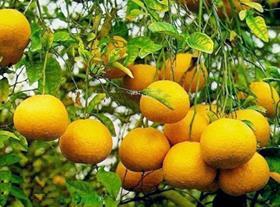
Pakistani kinnow mandarin exporters are experiencing one of the worst seasons in living memory, according to Fawad Zafar of grower-shipper Iftekhar Ahmed & Co (IAC).
Iran – one of Pakistan’s largest markets – has so far remained closed to the fruit because of high import tariffs. And Indonesia failed to sign a preferential trade agreement (PTA) in time to receive peak volumes. Meanwhile, unskilled customs officers, assigned to check fruit for drugs prior to discharge from Pakistani ports, have left many kinnow consignments damaged or depleted prior to export, Zafar said.
“We’ve had complaints from customers in Manila saying cases have arrived short and in poor quality. The fruit has been handled brutally, and some of it stolen,” he told Fruitnet.com.
The Russian market, meanwhile, has been depressed due to exchange rate issues, economic conditions and a surfeit of mandarins from all sources.
“Returns from Russia have been below expectations,” Zafar said. “Pakistan overloaded that market because Iran and Indonesia were closed to them. And at the same time, Russia was receiving mandarins from Turkey and Morocco much later than usual. They usually stop in February.”
But it is possible the market will pick up from mid-February once Turkish and Moroccan fruit exits the market, he said.
Pakistan has also failed to get good returns from the Middle East due to oversupply there too. To make matters worse, heavy rains have affected the quality of later varieties, according to Zafar.
“Initially quality wasn’t bad. But now it’s not great. There is heavy net on the skin, making it more second class,” he said. “The best time to load to Iran and Indonesia has gone. We will damage our country’s reputation if we were to load now.”
Pakistan’s kinnow mandarin volumes will fall well below target this 2011/12 season because of market closures and export problems, Waheed Ahmed, co-chairman of All Pakistan Fruit and Vegetable, Exporter, Importers and Merchants Association, told Fruitnet.com.
Exports may reach 2.2m tonnes – a long way off from shippers’ 3m-tonne goal, he said.
However, he is optimistic that Pakistani kinnows will gain access to Iran in March, in time for Iran’s Nowruz New Year festival – typically a period of strong demand for Pakistani kinnows.
Ahmed was also upbeat about prospects for late-season fruit thanks to Pakistan’s albeit delayed PTA with Indonesia. The agreement will come into effect from late February, he said.



